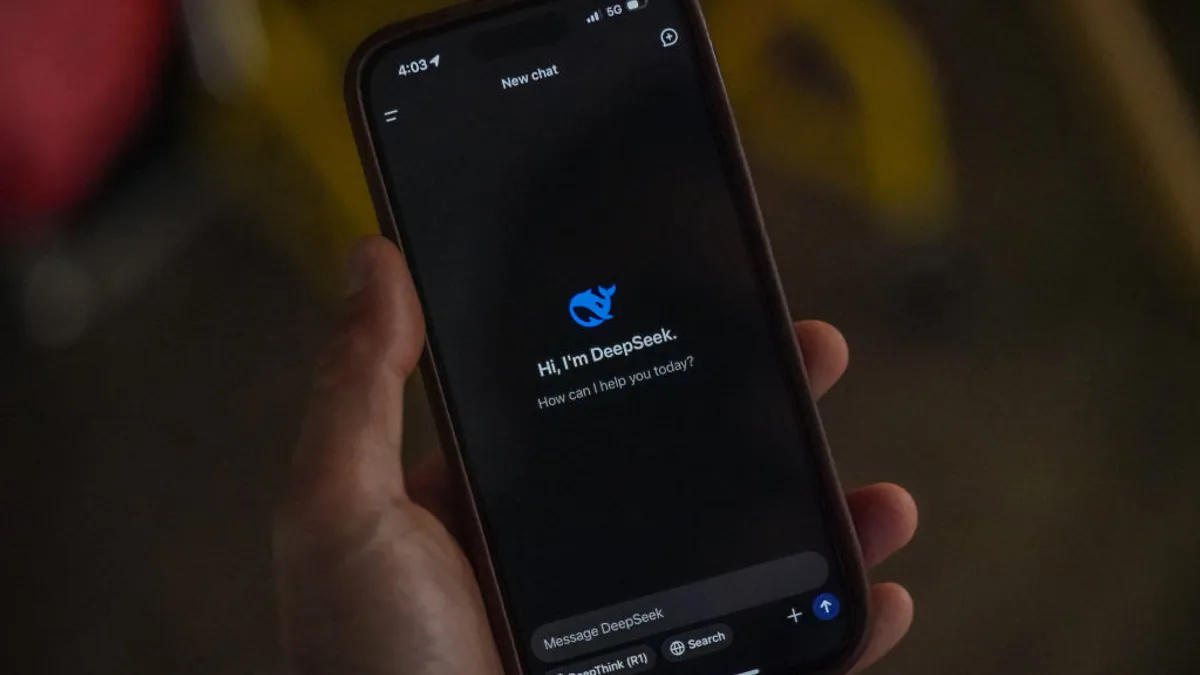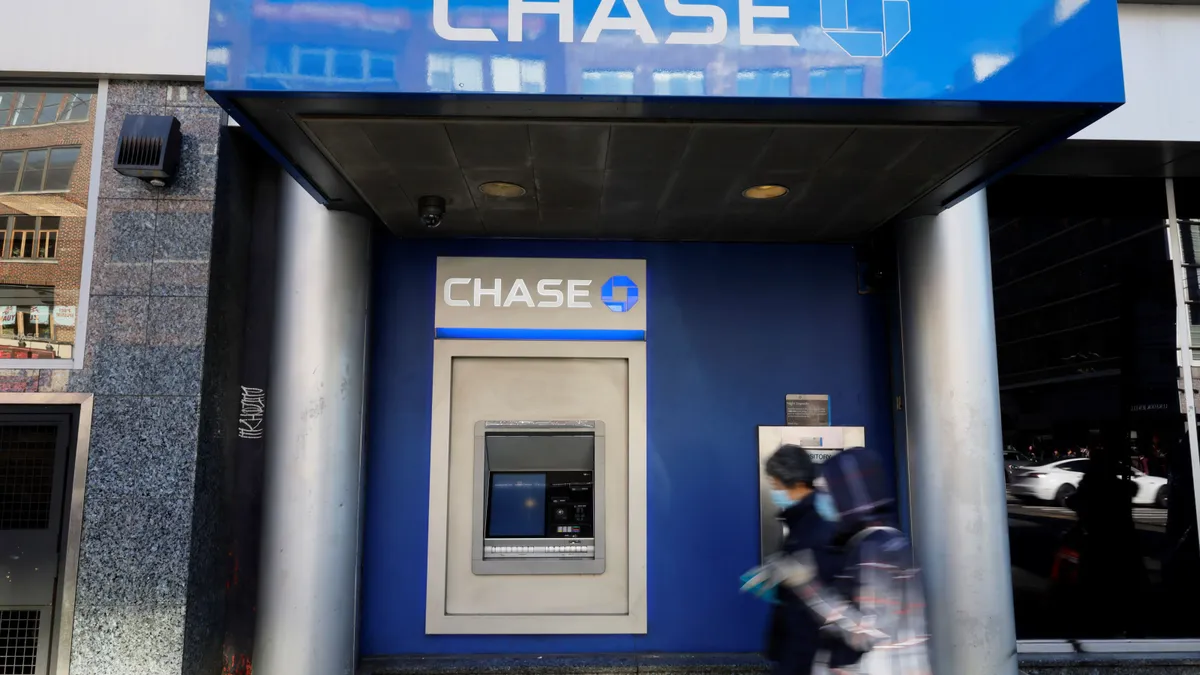On his first full day in office as the acting director of the Consumer Financial Protection Bureau, Russell Vought ordered the bureau to stop its work.
On Saturday, Vought, also the head of the Office of Management and Budget, sent an email instructing employees to stop work on proposed rules as well as investigations. He informed the Federal Reserve that the CFPB would not be taking any unappropriated funding for the fiscal quarter starting in April. On Sunday, employees were told to work from home this week.
The move comes less than two weeks after President Donald Trump fired the head of CFPB, Rohit Chopra. Elon Musk, who leads the Department of Government Efficiency alongside Vivek Ramaswamy, has made it clear that his goal is to dismantle CFPB. On Friday, Musk posted on X “CFPB RIP” with a tombstone emoji.
The CFPB provides consumers confidence that the financial services they are engaging with are regulated, experts and consumer advocacy groups told CX Dive. If the government’s consumer watchdog stops its work, experts argue, consumer financial safety and trust is at risk.
Businesses will need to ensure the safety of the products themselves, or consumers may not be able to trust the financial products or the institutions offering them, according to Judy Weader, principal analyst at Forrester.
“Consumers are going to have to trust that the firm that they're doing business with is trustworthy, is not taking advantage of them, is doing right by them, and they will probably become even less trusting when something goes wrong,” Weader said. “And they may be more likely to switch where the switching costs are not so severe, where it's not a massive pain to pick up and move everything. They may be willing to do that.”
Consumers need to trust that their bank is doing right by them. Otherwise banks could face a situation no one wants in which consumers withdraw their money from financial institutions, experts told CX Dive.
“If consumers get to the point where they don't trust lenders to treat them fairly, they're going to maybe withdraw their business from the marketplace,” said Chuck Bell, programs director of advocacy at Consumer Reports. “And it's also going to be hard to differentiate between companies that are doing well by their customers and those that are not.”
The role of the CFPB
The CFPB formed in the aftermath of the 2007 to 2008 recession after risky financial products, most notably subprime mortgages, were sold to consumers who could not pay them back.
The brain child of Sen. Elizabeth Warren, the bureau was charged with providing a single point of accountability to enforce federal consumer financial laws and protect consumers. Prior to its formation in 2010, multiple agencies were responsible for enforcing consumer financial laws.
“The CFPB was created because we had this massive financial crisis, and other agencies that were responsible for overseeing the financial system were not able to cover it,” said Nidhi Hegde, executive director of the American Economic Liberties Project. “Over the last decade plus, things have been moved into being under CFPB authority.”
The CFPB’s purview includes everything from making sure lending rates aren't usurious to penalizing companies who fail to keep financial information safe and secure, experts told CX Dive.
“The CFPB was there to be a consumer watchdog, specifically from a financial services perspective, so they're there to make sure that banks and other financial institutions are doing right by their customers,” Weader said.
Since its founding, the bureau has returned over $21 billion to consumers and fielded over 6.8 million consumer complaints.
Behind the formation of the bureau was the idea that regulation would level the playing field for honest businesses.
“To some degree, regulation is good for the industry because it creates a predictable business environment where also you cannot be so easily undercut by predatory competition," Bell said. “There should be a level playing field for honest competition among institutions that observe the laws and look out for consumer welfare.”
But the watchdog has also drawn the ire of big banks and Republican lawmakers over the years as an overly aggressive regulator and an example of bureaucratic overreach.
What’s at stake
Groups representing banks have largely welcomed Vought’s actions to halt the CFPB’s work.
The Consumer Bankers Association, whose members include Ally, Capital One and Barclays, said it was time to “reboot the CFPB.”
“This will not only ensure strong consumer protection but also restore credibility and durability to an agency that for too long has put politics over policy,” a CBA spokesman said in an email to CX Dive. “We look forward to engaging with Acting Director Vought and his team to advocate for sound, common-sense regulatory policies so that America’s leading retail banks can continue to improve consumers’ individual lives and collectively drive the country’s economic growth.”
Vought has ordered the bureau to halt rules that have been finalized but not yet effective, the Associated Press reports. This could impact rules like the credit card late fees rule, which is set to reduce the average late fee from $32 to $8 at maximum and is currently being challenged in court.
The CBA has called for the CFPB to rescind the rule — a move consumer advocacy groups say would cost consumers.
“If the CFPB declines to defend that lawsuit, then consumers potentially lose $10 billion a year,” Bell said.
Other rules that could be rescinded include the overdraft fee rule and the medical debt credit reporting rule.
To Hegde, telling the CFPB to freeze its work amounts to “removing the cop from the beat.”
“He's preventing the bureau from completing its ongoing efforts where they're investigating major banks like Bank of America, JP Morgan, Wells Fargo and others,” she said.
Wells Fargo, for example, gained the attention of the CFPB after bank employees opened thousands of bank accounts under customers’ names without their consent and was fined $100 million in redress.
It remains unclear how much other agencies would take on regulatory oversight.
“Maybe some of that work gets absorbed into Treasury or into the FTC, or maybe it just doesn't happen,” said Weader. “And if it doesn't happen, then the assumption is the regulation needs to happen at that business level.”
The CFPB also regulates emerging industries like payment platforms, AI, data brokers, data privacy rights and regulation of nonbank financial companies, Bell said.
“I think it's very much up in the air that if the bureau decides to deprioritize certain activities, there's big swaths of the financial sector where consumers will be almost completely unprotected,” Bell said. “And people will also be harmed and have no recourse to get their money back or to have any sort of disciplinary actions taken against the companies.”
Customer experience leaders’ role
If the CFPB is dismantled and regulatory actions are not taken up by other agencies, financial institutions will have to self govern. For CX leaders, this means that they’ll have to take on a consumer advocacy role, Weader said.
“The CX person has to be the one representing that consumer and that consumer's voice,” Weader said. “So this is where they need to be involved in the product. They'll probably end up being a bit of a gadfly.”
When the product team is excited about the latest potential offering, it’s the CX leader’s job to stop and question not whether they can offer it but whether they should.
“When it comes down to the specific products, I think this is where CX leaders can really be helpful — understanding the products that their financial institutions are putting together and understanding the impacts on their customers, where they are working, where they're not working, and making sure that everything they're doing is only supporting trust.”
The risk is losing trust — and potentially losing business.




















